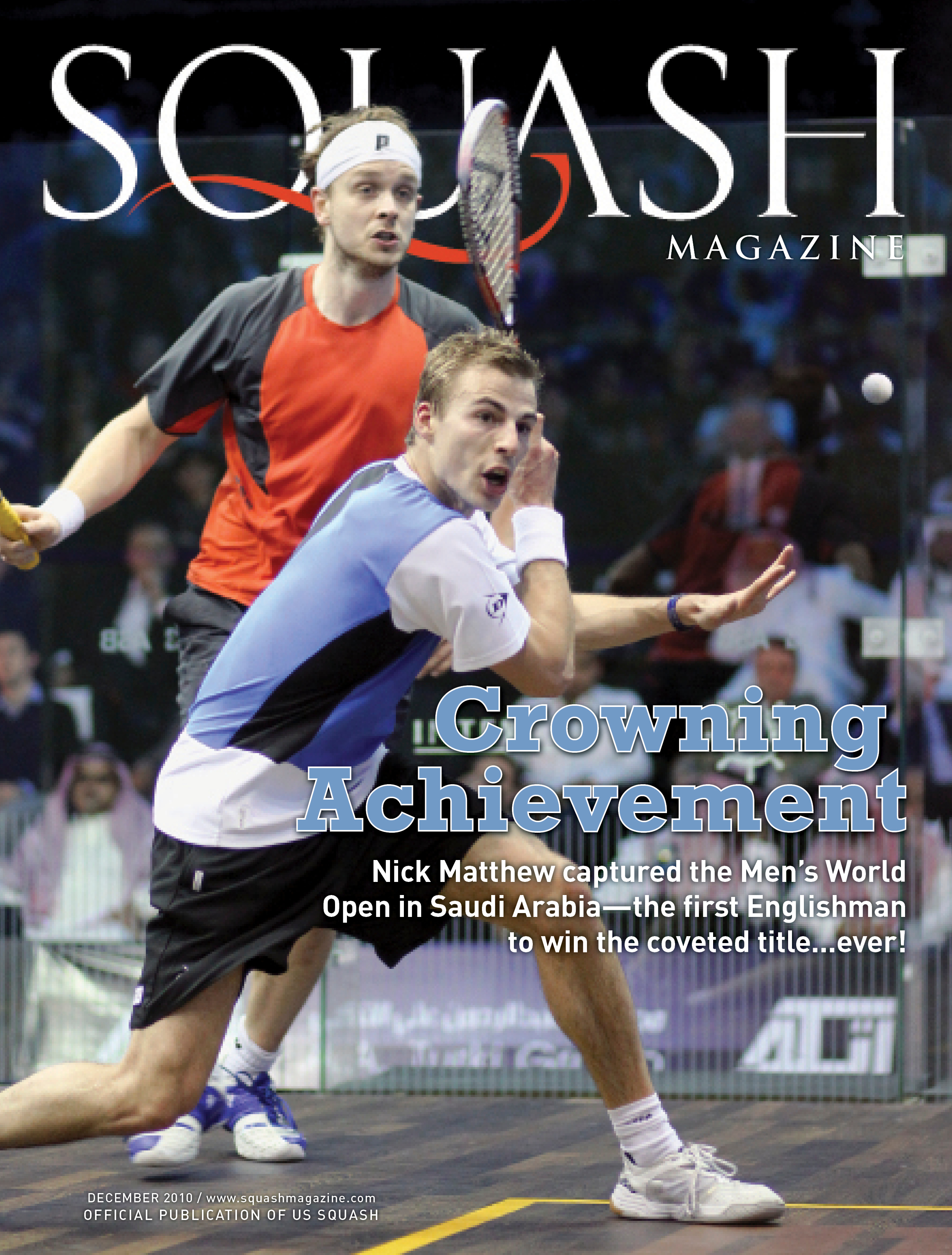By Jay D. Prince
After writing about issues I have with some junior players last month, I’ve had a couple of conversations with juniors who suggested another topic: things adults can, and should, do to make the junior players’ experience a better one.
I appreciated the junior players I spoke with acknowledging what I waxed on about, but that is really only part of the dynamic experienced on court when adults are paired with junior players.
For example, how often do you, adult squash player, contact a junior to play? Or do you always leave it to the junior to seek you out? From what I understand, that is not at all uncommon. But is that fair? Why should it be left up the the boys and girls to ask adults to play? I mean, if their standard is on par—if not better—than yours, shouldn’t you be willing to initiate a match?
How about reserving courts? You are more than familiar with whatever process your club has in place for reserving courts. When you play a junior, do you take ownership and book courts for those matches, or do you leave it up to the kids? I don’t know about you, but if I did that, we’d never get a court because the reservation window opens at 9:30am for courts two days in advance. Kids are in school during that time. So buck up and book the court yourself. If for some reason you can’t, let the junior player know.
Timeliness is another issue, which, needless to say, is universal. We are all guilty of arriving late on occasion. The chronically late are a pain in the you know what. I’m guilty of being late sometimes and feel terrible when I am, especially if my court time is during peak play. So while you’re doing your best to show up on time for matches with adults, show the same courtesy to the juniors you play. While they may not have jobs or family (I mean, as parents) to get back to, they do have school work, other extracurricular activities, and possibly part-time jobs of their own.
Come equipped to play…with a ball that you both will be content with. Nobody raised this issue with me, but I’m sure it comes up. You no doubt carry a sufficient supply of balls and, over time, play with one of yours about 50% of the time. This should also be a universal truth—regardless of who you play.
Which brings me to what may be the most important thing to keep in mind when you, as an adult, are playing a junior player: He or she is not only likely to be a better player than you, but he or she is far more likely than you to have a firm grasp of the rules—particularly when it comes to lets and strokes…and no lets!
In most instances, the reason you are playing the junior is because they have become adept at playing the game of squash. And guess what, they play way more tournaments than you, and they are required to pass a basic-level rules exam to even be eligible for U.S. SQUASH sanctioned events.
I would venture to guess that junior players who have reached the level of tournament play enter upwards of 10 or more tournaments in a given season. By doing so, they will get somewhere in the neighborhood of 20-50 matches of refereeing experience EACH SEASON, depending on how far they progress (remember, many junior tournaments feature full feed-in draws which means they play more—and referee more).
Personally, given the option of having a junior player in Seattle referee my matches or an adult, I’d choose the junior every time. While some juniors abuse the let system by calling just about anything that hints at being interference, most play the points as they should be and request lets when truly deserved. Adults? Not so much. You know who you are. So suck it up and trust that when you are playing a junior, that funny look on their face when you ask for a let is probably because you don’t deserve it. But because they know they are younger, they won’t argue. Do yourself a favor—don’t give them a reason to want to question your calls.
Finally, don’t whine, or moan, or groan, scream, yell, pout, or give a whimpy handshake after they crush you. Look at them in the eye and just say, “Well done.” This last one was all mine.




